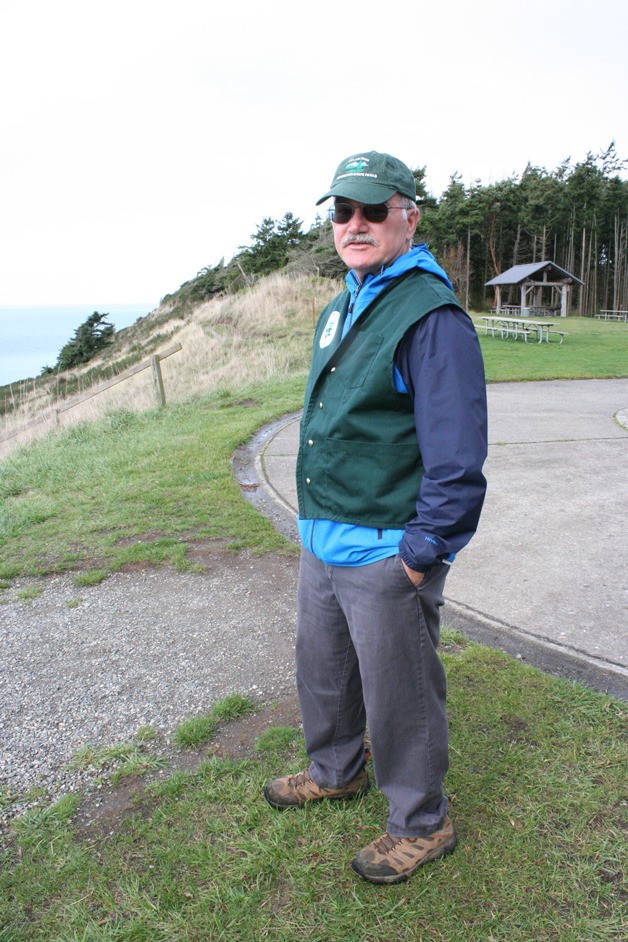In the face of diminishing funding for state parks, local parks staff said they are having to get creative to keep parks running smoothly.
Representatives from Washington State Parks presented the agency’s current condition to Whidbey leaders this week, in efforts to both inform and seek partnerships that may help them do more with less.
“The only way we can make this happen is if we all work together,” said Deception Pass Manager Jack Hartt to members of the Council of Governments. “Alone I can’t do that on my own with my staff, we can’t do it on our own. But together, if we work together as governments, if we work together as neighbors and community… our state parks can work for all of us.”
The Island County Council of Governments includes Oak Harbor Mayor Scott Dudley, Coupeville Mayor Nancy Conard, Langley Mayor Fred McCarthy, Island County Commissioner Helen Price Johnson and Port of South Whidbey representative Curt Gordon.
Combined, Whidbey Island’s nine state parks bring 4.7 million visitors each year, with 2.7 million going to Deception Pass alone.
Daniel Farber, policy and governmental affairs director for state parks, said that the last few years have been tumultuous for state parks as funding has been slashed and the Discover Pass initiated.
“We’re in such tumult right now, we’ve laid off one-third of our full- time employees,” Farber said.
The state funded parks with $94 million in general fund dollars as recently as 2009, but has cut that down steadily each year. In 2013, the state gave only $8.5 million to parks.
Farber said that while income from the Discover Pass has helped offset the state’s shrinking contribution, state parks are still struggling to provide minimal services.
On Whidbey, the reality of cuts has meant reduced camping seasons at South Whidbey and Fort Ebey, summer interpretive programs have been on hold, office hours have been reduced and some restrooms are closed in the winter, according to Central Whidbey Area Manager Jon Crimmins.
Crimmins added that short-staffing has led to poor morale and motivation; there’s not enough staff to open and close gates, and problems at a specific park leaves other parks unattended.
“The State’s shrinking budget led to a need to reduce staff and find new ways to manage our parks,” Crimmins said.
This has led to creating a large management area for all Whidbey Island state parks, with the exception of Deception Pass which has its own management team.
Farber said when the Discover Pass was initiated in 2011, the legislature directed state parks to work toward 100 percent self-sufficiency, a goal he said is unrealistic.
“We can’t get there, we don’t want to get there, we don’t think the public wants us to get there,” Farber said. “We think with a public park system you need public stakeholders.”
In that light, state parks has attempted to form partnerships with other organizations, schools and volunteer groups to stretch their resources.
“It’s not all doom and gloom,” Crimmins said. “We found some solutions.”
Among those include creating a central office for all permanent staff at Fort Casey, an office assistant assumes many of the administrative tasks, supplies and products are standardized, park rangers’ schedules are prioritized by need, and the volunteer program has been vastly expanded to assist with park clean-ups and customer service.
“We’ve had all sorts of local volunteer help,” Crimmins said.
Moving forward, state parks is hoping to continue to find ways to generate revenue as well as rely on local partnerships, Crimmins said. Just a few of these include island Lions Clubs, local Boy Scout Troops, the Island County Beachwatchers and schools.



